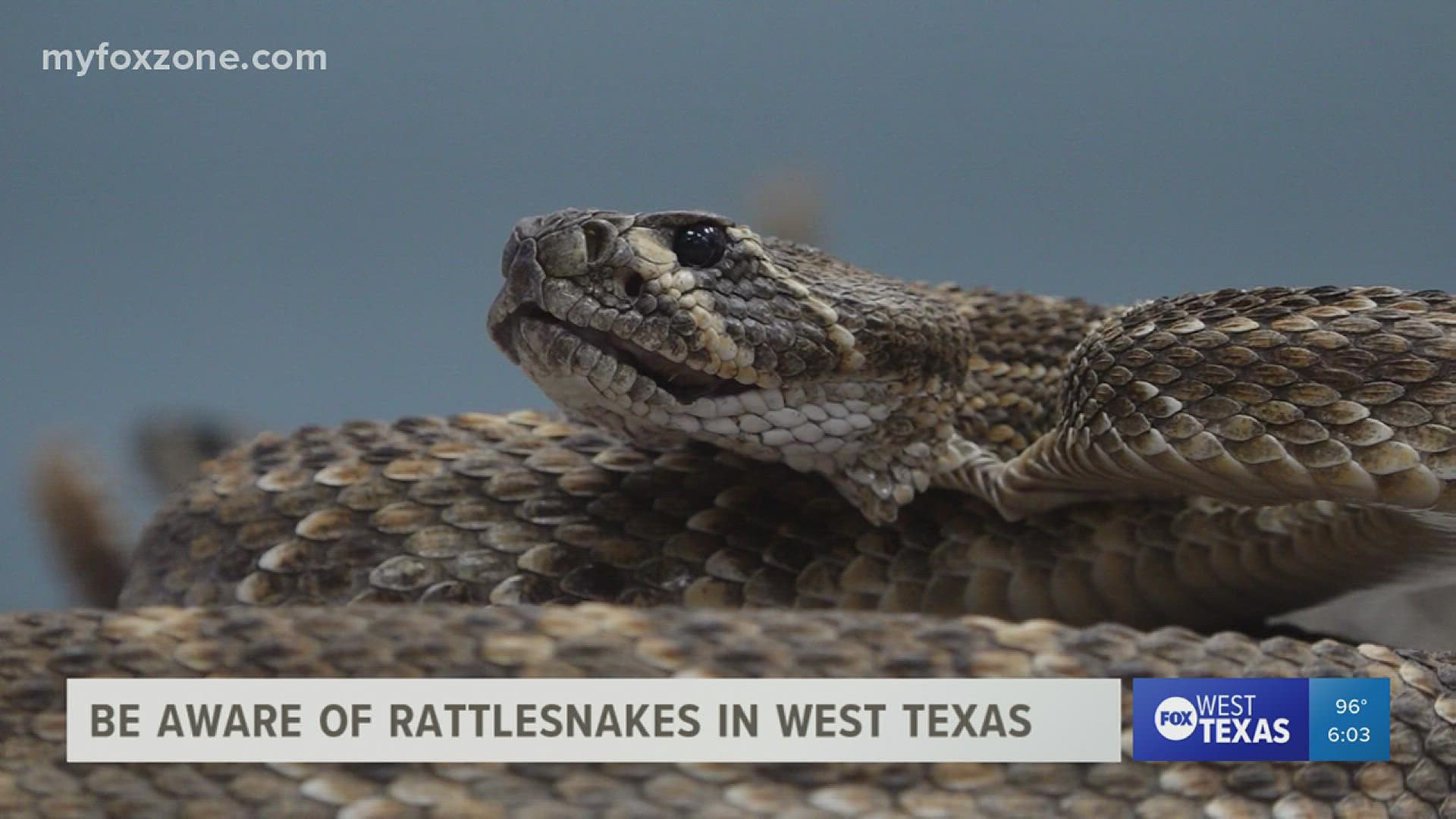SAN ANGELO, Texas — Rattlesnake season has begun and the town of Sweetwater has been seeing them non-stop.
"I don't understand rattlesnake behavior, but it almost seems like if we get one call, we're going to get multiple calls because something prompts the snakes to be out and about in the cool of an evening," Sweetwater Police Department Assistant Chief Cory Stroman shared. "You'll find them on a sidewalk or in the gravel trying to get one from those areas as it starts to cool off. And then in the heat of the day, they might be somewhere where it's cooler trying to escape the high heat that we've been seeing."
Rattlesnakes are prominent in West Texas, with at least two Texans dying each year from venomous snakebites, according to Texas Parks and Wildlife.
San Angelo Nature Center Recreation Coordinator Selina McSherry explained what to do if you're ever bitten by one of these venomous creatures.
"Let's just say you happen to get bit by a venomous snake. There's myths. You don't want to cut it. You don't want to suck the blood out. You don't want to wrap it up. You don't want to do anything like that," McSherry explained. "Obviously, you want to get to a hospital immediately. You want to take off any clothing and jewelry that's close to it because it will swell. Put the bite above your heart. Hopefully wherever the bite is, they can get to the hospital as soon as possible." McSherry continued.
McSherry also said the best thing to do if you see a rattlesnake is to stay far away, call animal control and avoid agitating it.
Now when it comes to protecting your pets from a rattlesnake bite, Western Veterinary Hospital Veterinarian Dr. Gary Hodges says your dog could still survive a rattlesnake bite with the proper care from a professional.
"Last week, we had nine dogs hospitalized and two cats. They could be anywhere at any time. So people should just be very, very diligent if they're taking their dogs walking. I would suggest that they keep them on a short leash so that they've got them under control and don't let them go stick their noses in places that they shouldn't be,” Hodges shared.
However if you decide to protect your family and your pets from rattlesnakes, McSherry says the last thing you want to do is kill them.
"Their venom today in science is being used for amazing things. It's actually being used in cancer research. Who knows what these snakes and their venom can do for us 20 years down the road." McSherry shared.
More details on specific rattlesnakes found in Texas can be found on the Texas Parks and Wildlife website.

